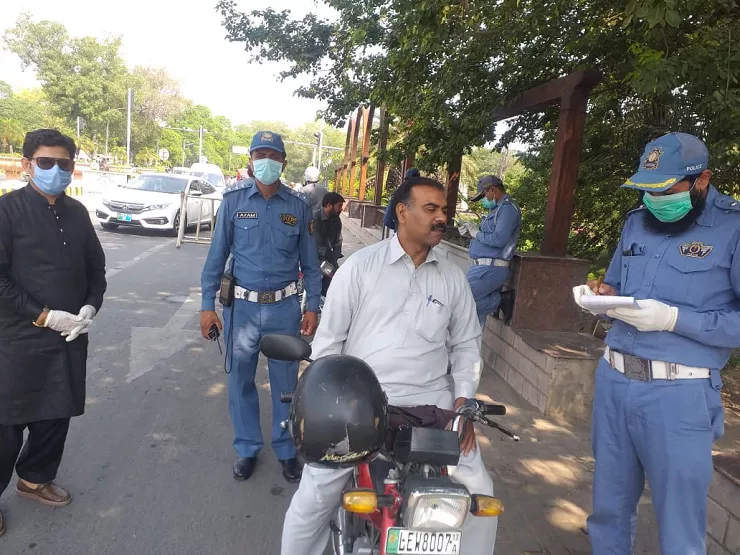Covid-19: debate on lives and livelihoods
Balance tilted in favour of livelihood keeping in view socio-economic problems
LAHORE: The Covid-19 is spreading across the globe. Brazil has become the epicentre in Latin America and has become the second highest country in the world as far as confirmed cases are concerned.This pandemic has gradually generated a debate on lives and livelihoods, specifically across the developing world.
Since the pandemic spread the most in the western world, the standard response was either a lockdown or a curfew.
The advanced countries can afford this kind of response since they have abundant resources and their infrastructure is well in place to mobilise resources to serve the masses at their doorsteps. In addition, their citizens are well aware of the risks associated with Covid-19.
Although these countries are resource rich, they also succumb to the vagaries of the fate. The less populated European countries have managed to curb the spread of the pandemic to some extent.
Specifically, Sweden managed to contain the spread with relatively low number of fatalities as compared to other countries in Europe.
The Covid-19 has affected the US a great deal in terms of mortalities. The lockdown measures have sparked a wave of unemployment in the US. The Bureau of Labour Statistics reported 14.7% unemployment rate in April 2020 with heavy job losses in entertainment and hospitality sectors.
The unemployment statistics are still on the rise and these high numbers have brought to the fore the significance of a welfare state.
Although the US government has announced a massive stimulus for the economy in general and has dished out cash to the vulnerable in particular, these one-off measures are not considered enough by many media commentators and analysts. These commentators argue that a major chunk of the stimulus has been given to large corporations.
However, these measures have been taken to appease the masses in an election year. On this basis, we may say that the response of the government is contingent on the timing of elections.
Pakistan government has also announced a stimulus package around existing programmes keeping in view the fiscal discipline. Therefore, the package did not go down well with media commentators and analysts.
They highlighted that there was a need to broaden the scope and scale of the package and it was high time that the government shun austerity measures.
The government has come up with a novel announcement of “Green Stimulus”, which it thinks will create job opportunities for the vulnerable over the next few years. In this vein, the government should concentrate on home-grown solutions instead of following readymade solutions.
Considering the gravity of the situation, there is a need for the government to discuss, deliberate and deliver in a quick manner.
On the contrary, the government adheres to the fiscal discipline since it intends to revive the Extended Fund Facility (EFF) of the International Monetary Fund (IMF), which has been suspended for the time being.
Even critics are of the view that the government is neither scaling up nor extending the scope of the stimulus package and deflecting attention of the masses by highlighting sugar and independent power producers’ (IPPs) scandals. This also implies that the government is fiscally conservative and may afford this behaviour since there is no urgency of elections.
In a nutshell, the debate of lives and livelihoods will keep on going. Keeping in view the glaring socio-economic problems, the balance seems to be tilted in favour of livelihood debate in Pakistan.
Proponents of lives are peddling hard that the ease in restrictions will have serious repercussions since the second wave of virus infections is around the corner. Last but not the least, reviving the sagging economy will be a key economic challenge to the government in the days ahead.
The writer is the Assistant Professor of Economics at SDSB, Lahore University of Management Sciences (LUMS)
Published in The Express Tribune, June 8th, 2020.
Like Business on Facebook, follow @TribuneBiz on Twitter to stay informed and join in the conversation.


COMMENTS
Comments are moderated and generally will be posted if they are on-topic and not abusive.
For more information, please see our Comments FAQ